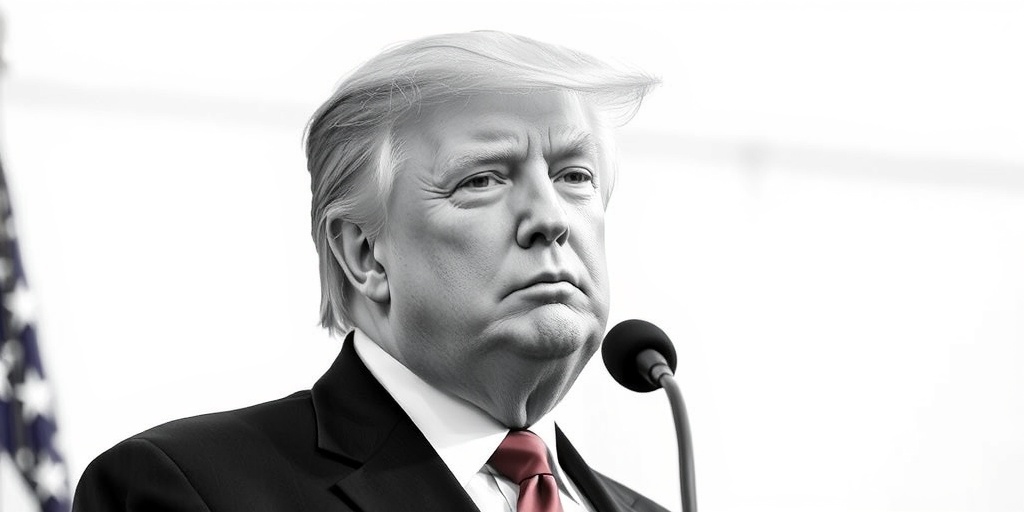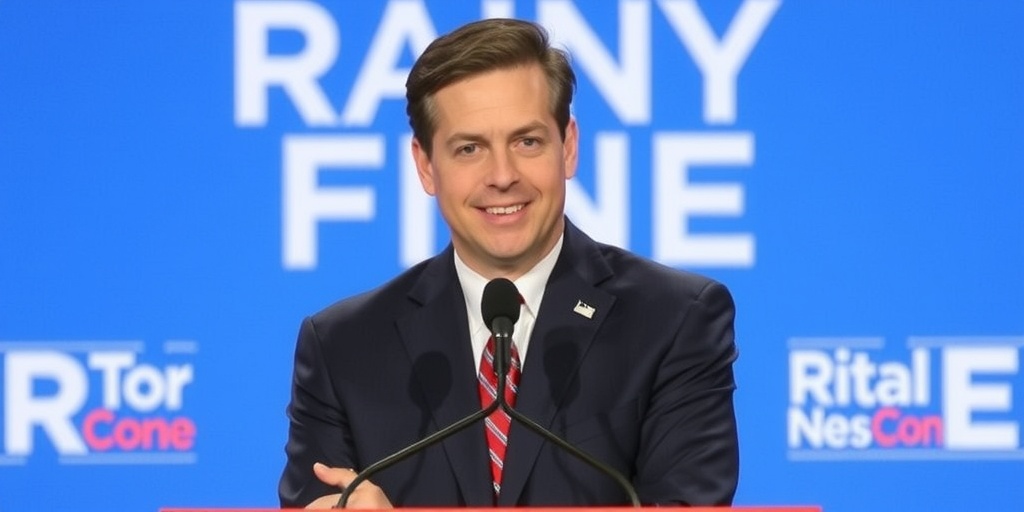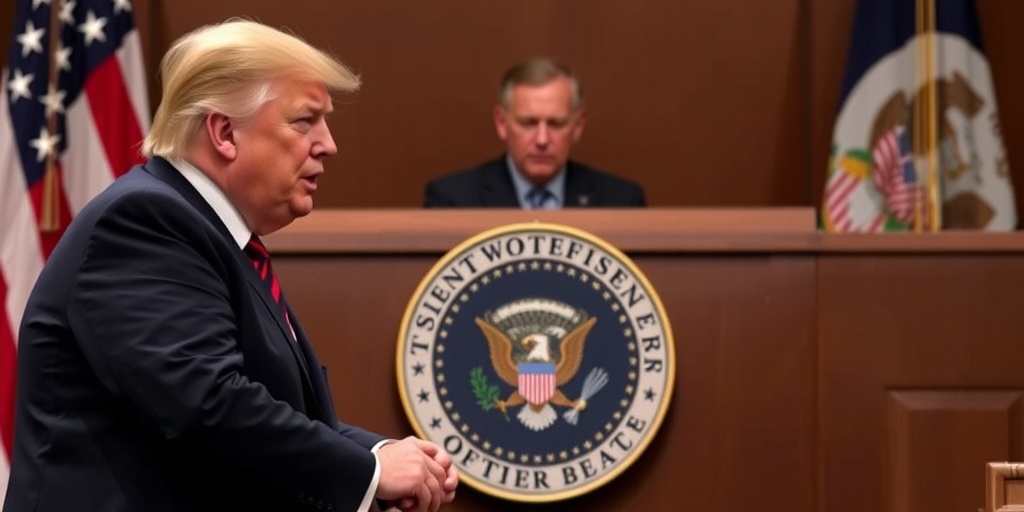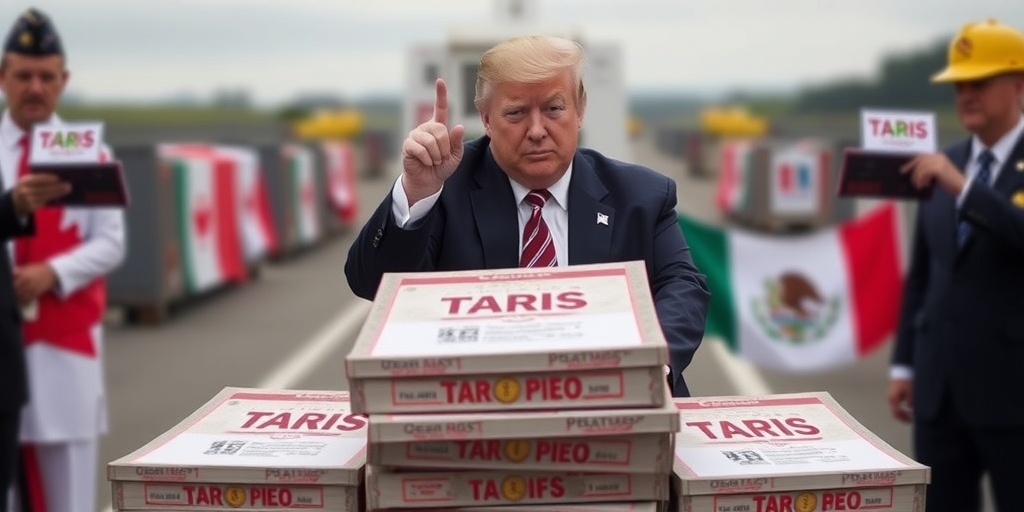Now Reading: Canada and China Respond to Trump’s Tariffs, Sparking Trade War Concerns
-
01
Canada and China Respond to Trump’s Tariffs, Sparking Trade War Concerns
Canada and China Respond to Trump’s Tariffs, Sparking Trade War Concerns
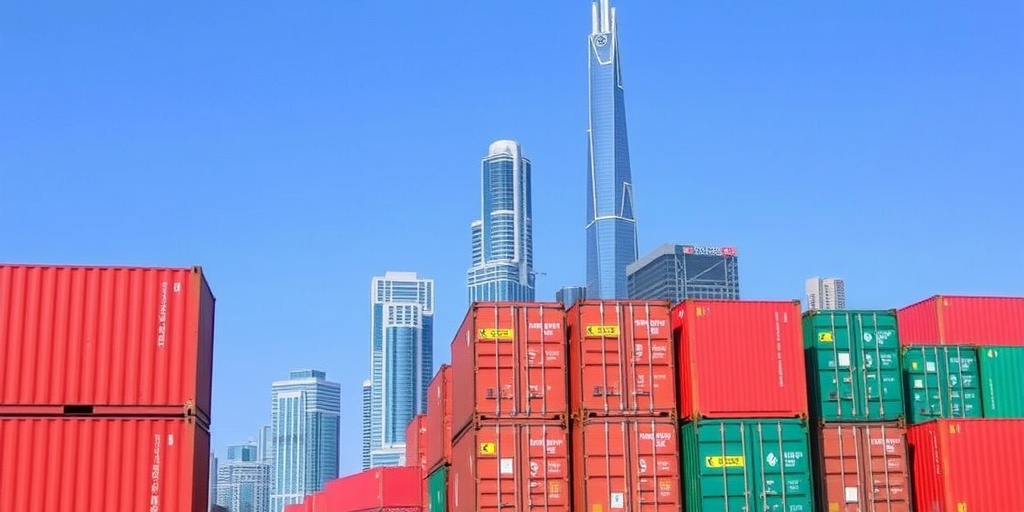
Title: U.S. Tariffs Spark Global Trade Tensions Amid Pushback from Allies
In a significant shift from long-standing free trade policies, President Trump has imposed sweeping tariffs on imports from key trading partners, raising concerns of an impending trade war and economic turmoil in the United States. On Tuesday, the administration implemented a 25 percent tariff on all imports from Canada and Mexico, alongside a 10 percent tariff on imports from China. These measures follow a previous 10 percent tariff on Chinese goods introduced just a month ago and other existing tariffs related to the ongoing trade tensions initiated during Trump’s first term.
The reaction from the affected countries was swift and severe. Canadian Prime Minister Justin Trudeau and President Claudia Sheinbaum of Mexico quickly condemned the tariffs, threatening retaliatory actions. Trudeau, in a pointed statement, warned that a trade dispute with Canada would yield no winners and expressed frustration at the U.S. administration’s decision to impose tariffs on its closest ally. Trudeau remarked, referring to Trump, “You’re a very smart guy. But this is a very dumb thing to do.”
In a retaliatory move, Canada announced a 25 percent tariff on $30 billion worth of American goods, which could escalate to $125 billion within 21 days. China’s finance ministry responded by introducing tariffs on a range of American exports, including 15 percent on chicken, wheat, and corn, along with a 10 percent tariff on various other U.S. products such as soybeans and pork. This bold counteraction reflects the rising tension and urgency surrounding the trade situation.
The immediate aftermath saw significant sell-offs in global financial markets, particularly affecting the automotive sector. Investors reacted to escalating fears regarding the economic implications of the tariffs. Major American firms, including retail giants Target and Best Buy, signaled potential price increases due to the tariffs, with industry experts predicting surges in gasoline and energy costs across the nation.
Amid the dispute, the previously cordial relations between Trump and various global leaders took a sharp turn. Trudeau and Trump exchanged barbs, with Trump referring to the Canadian leader as “Governor Trudeau” while implying a desire to annex Canada. Trudeau countered, expressing his firm stance against any such notion and denouncing Trump’s tariffs as a betrayal of a longstanding partnership.
Prime Minister Trudeau’s remarks resonated with sentiments expressed by officials in Canada and Mexico, who had made efforts to reassure Trump of their commitment to addressing border security and drug trafficking issues. Despite these assertions, the American administration has maintained that the imposed tariffs aim to combat illicit drug trade, particularly fentanyl, with Vice President JD Vance advocating for more stringent Canadian action against drug smuggling.
Trump, in defense of the tariffs, argued that U.S. banks face barriers in Canada while Canadian banks operate freely in the American market, claiming the need for corrective measures. His administration suggested that the tariffs could incentivize businesses to relocate operations to the U.S., thereby evading tariffs altogether.
Despite the administration’s rationale, many economists warned that the tariffs could adversely affect economic growth both domestically and among affected countries, including Canada, Mexico, and China—historically the U.S.’s top trading partners. Analysts from Barclays investment bank projected the tariffs could eliminate nearly all profits for major car manufacturers like General Motors and Ford. Inflation predictions indicated that a significant price rise could occur by year-end if tariffs remained in place, with consumer goods, including gasoline, expected to experience notable increases in price.
In the Midwest and Northeast, where refineries and electrical grids depend heavily on Canadian supplies, residents stood to be particularly impacted by rising fuel and electricity costs, with projections suggesting increases of 20 to 40 cents per gallon of gasoline by mid-March in certain regions.
Political divisions in Canada were also laid bare, as Conservative Party leader Pierre Poilievre condemned Trump’s actions, claiming that America has “stabbed Canada’s best friend in the back.” The fallout extended to actions taken by regional leaders; for instance, Ontario Premier Doug Ford announced a ban on U.S.-made liquor and threatened additional surcharges on electricity exported to the U.S.
As uncertainties and volatility continued to affect global markets, some of Trump’s supporters expressed reluctance without broad endorsements, like Senator Ted Cruz of Texas, who hoped for a rapid resolution to the tariffs.
With Global economic dynamics shifting, the impact of these tariffs and the potential for further escalations remain a critical issue for policymakers and citizens alike. The unfolding trade war underscores the complexities of modern economic interdependence, drawing attention to the balancing act required in international trade relations during this tumultuous period.
Stay Informed With the Latest & Most Important News
Previous Post
Next Post
-
 01New technology breakthrough has everyone talking right now
01New technology breakthrough has everyone talking right now -
 02Unbelievable life hack everyone needs to try today
02Unbelievable life hack everyone needs to try today -
 03Fascinating discovery found buried deep beneath the ocean
03Fascinating discovery found buried deep beneath the ocean -
 04Man invents genius device that solves everyday problems
04Man invents genius device that solves everyday problems -
 05Shocking discovery that changes what we know forever
05Shocking discovery that changes what we know forever -
 06Internet goes wild over celebrity’s unexpected fashion choice
06Internet goes wild over celebrity’s unexpected fashion choice -
 07Rare animal sighting stuns scientists and wildlife lovers
07Rare animal sighting stuns scientists and wildlife lovers













